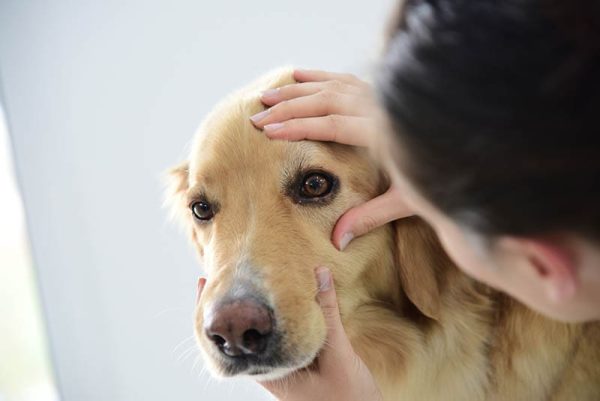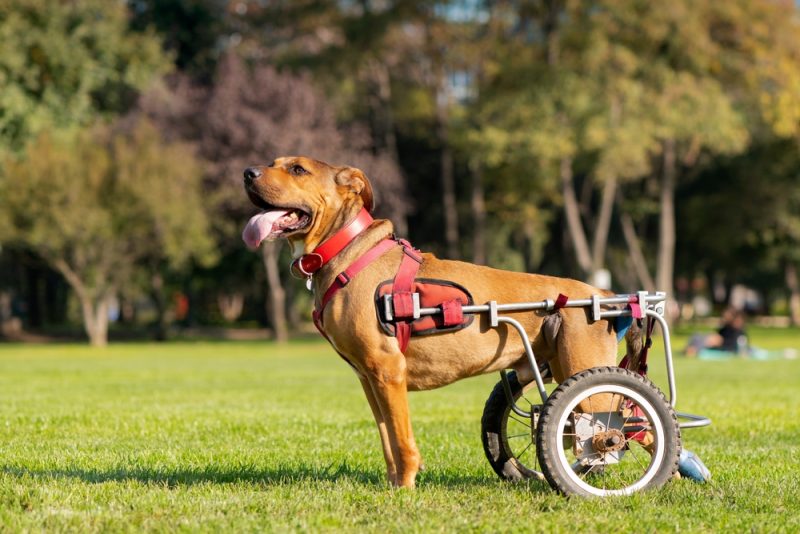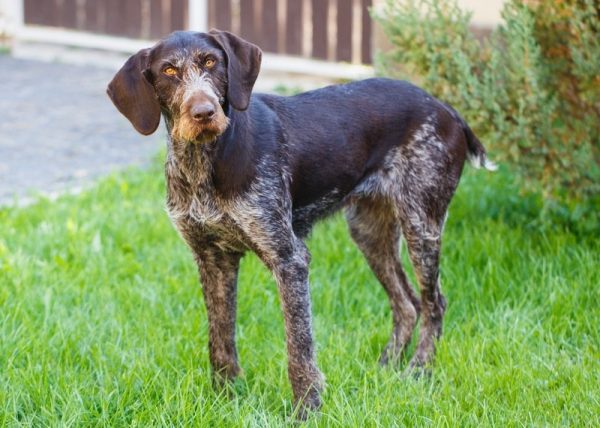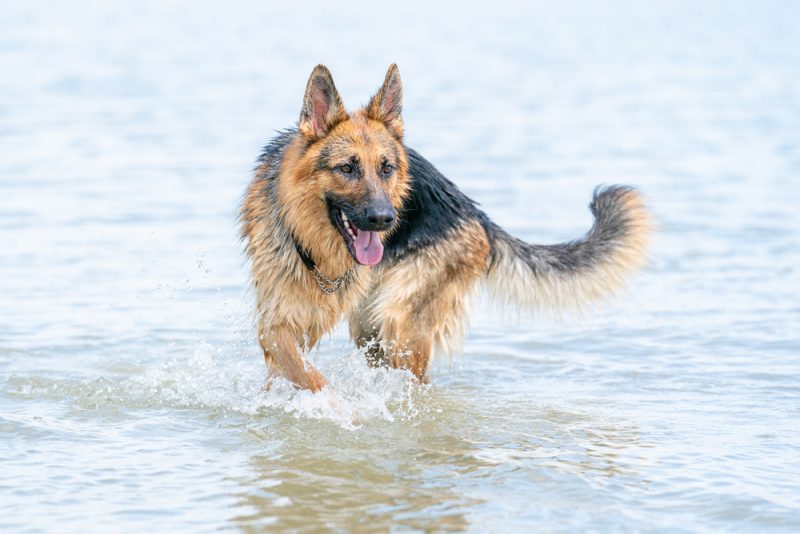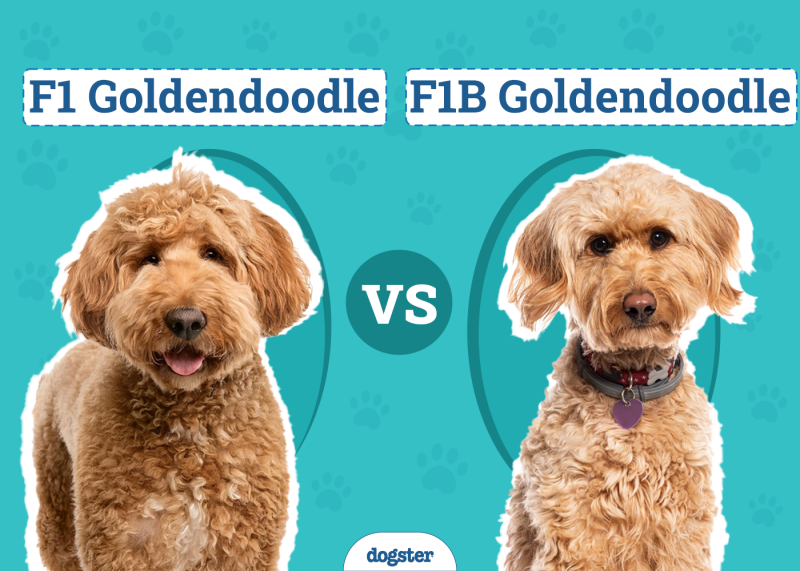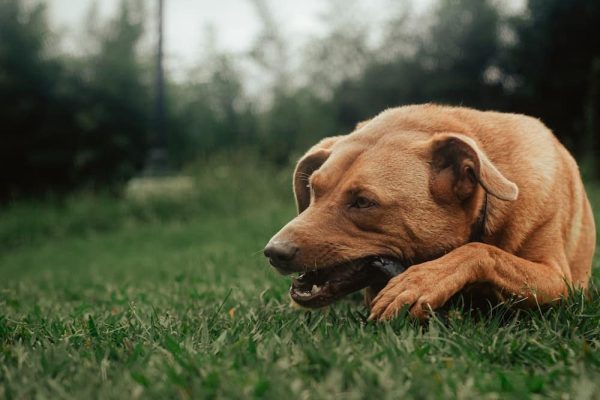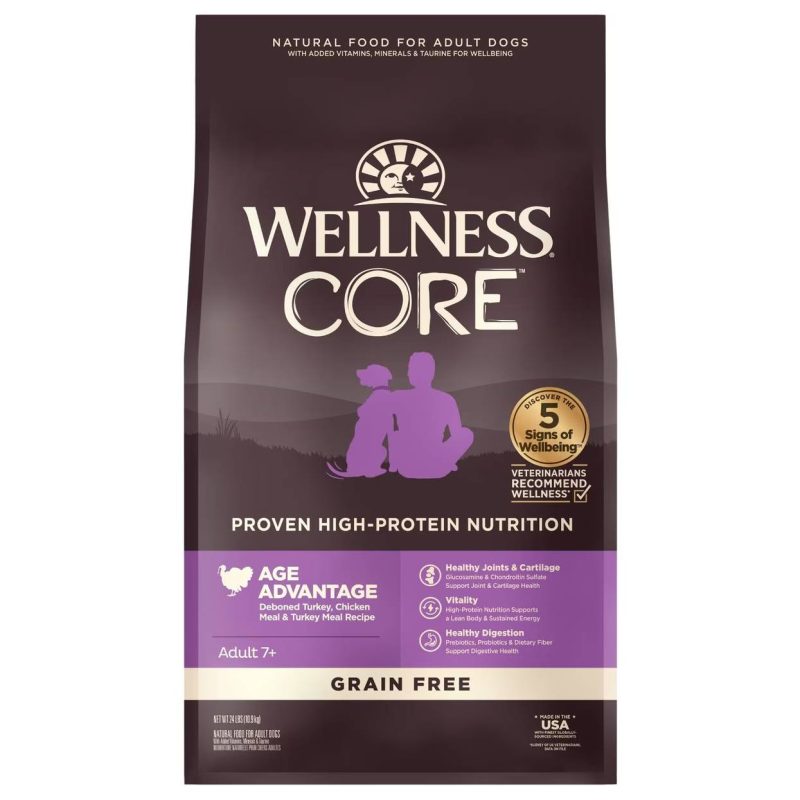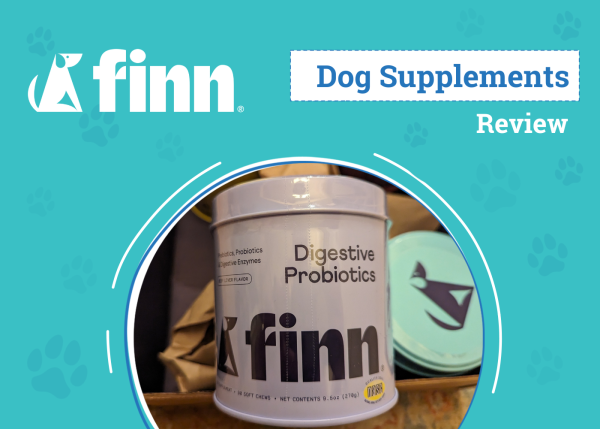Skin conditions in dogs are a hot topic these days. Many dogs experience allergies, skin infections, itchiness, discoloration, hair loss, etc. But what about the condition known as ichthyosis? What is this disease, what are the causes, and what can you and your veterinarian do for your dog?
There are ongoing studies regarding the prevalence of the disease in Golden Retrievers, but it appears to be over-represented in goldens, Jack Russells, and bulldogs. Keep reading for more on ichthyosis in Golden Retrievers.

What is Ichthyosis?
Ichthyosis occurs when the outer layer of the skin (the epidermis) does not properly develop. This condition will result in scaling and eventually progress to large areas of thickened, black-colored skin in addition to the scaling. The skin normally has 3 layers—subcutis, dermis, and epidermis—with the epidermis being the outermost layer.
The epidermis protects against noxious and foreign substances and helps protect the other layers from exposure to these substances and the elements. It is composed of four types of cells and is connected to the dermis (the middle layer of skin) by the basement membrane. The outermost layer of the epidermis, the stratum corneum, is the first line of defense of your skin.
With ichthyosis, the stratum corneum does not form or develop correctly.
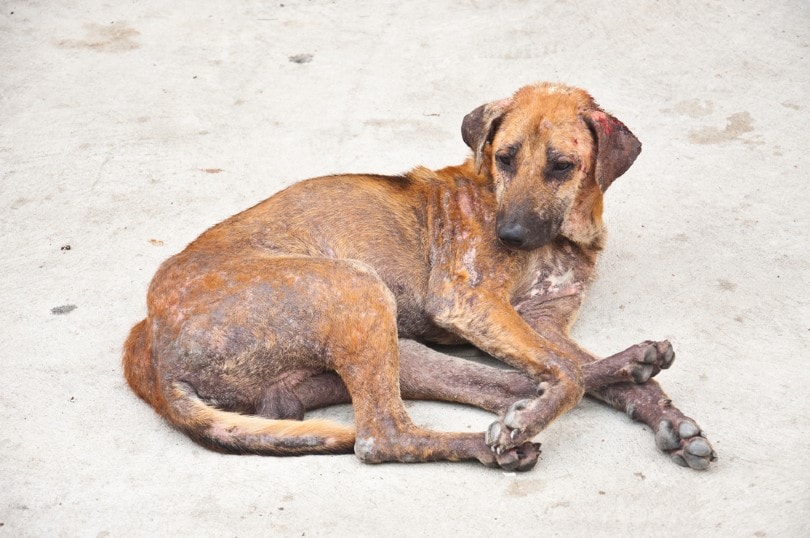
What Are the Signs of Ichthyosis?
Initially, you may just think your Golden has dandruff because you’ll notice small, white scales close to the skin. However, as the condition progresses, the scales will become pigmented (colored gray to black) and can range in size. These flakes will stick to the fur and often make the skin feel greasy.
Your dog will typically not be itchy, licking, or otherwise irritated with the condition, which can lead to either misdiagnosis or no diagnosis at all for years. However, dogs with ichthyosis are more prone to secondary yeast or bacterial skin infections. The infections can be very itchy, further complicating the diagnosis.
Typically, dogs do not get scales on the head, legs, paw pads, or nose; the primary areas affected are the neck and trunk. However, as the disease progresses, you may notice thickened paw pads and patchy, pigmented areas of skin over the body.
If your dog is showing any of these signs and you are seeking the best possible treatment for your pup, we recommend speaking with a vet.
If you need to speak with a vet but can't get to one, head over to PangoVet. It's our online service where you can talk to a vet online and get the advice you need for your dog — all at an affordable price!
What Are the Causes of Ichthyosis?
In Golden Retrievers, ichthyosis appears to be an inherited disease caused by a genetic mutation. This mutation prevents the stratum corneum (outermost layer of the epidermis) from forming properly. Because the disease is inherited, it’s crucial to speak to your breeder about testing they may have done in any of their dogs prior to working with them.
If you plan to breed your Golden Retriever, it’s your responsibility to pursue testing not only in your pet, but also the dog you plan to breed yours with. Keep in mind that it is irresponsible to breed affected Goldens.
If your veterinarian suspects that your Golden Retriever has ichthyosis, they may recommend a skin biopsy for a definitive diagnosis. If you plan to breed your Golden Retriever, genetic testing is available to identify if they carry the responsible gene(s). These are specialized tests and need to be submitted by a veterinarian to an animal genetics laboratory offering the appropriate test.

How Do I Care For a Golden Retriever with Ichthyosis?
First and foremost, you should seek veterinary advice for any skin condition. There is a lot of misinformation on the internet about what your dog’s skin condition may be from and how to treat it. Many people misdiagnose their pets with food allergies without knowing other possibilities.
Your dog may have food allergies, but they may also have fleas, a skin infection, environmental allergies, a thyroid problem, and many other conditions causing their abnormalities. If you notice any scaling, color changes to the skin, hair loss, itching, excessive shedding, or other abnormalities, please speak to your veterinarian about treatment and diagnostics.
We do not recommend slathering your pup’s skin and coat with any type of oil, lotion, or cream. Some of these may worsen the condition, especially if an infection is present. Most dogs will not tolerate this and may constantly roll, lick, or chew to try and get the products off their skin. This may cause unwanted further problems. Under no circumstances should you use eczema or other human skin condition treatments on your dog. They may contain harmful ingredients.
Once a diagnosis of ichthyosis has been made, your veterinarian will help you manage scaling or skin thickening with prescription shampoos, conditioners, mousses, and veterinary-specific products. The underlying ichthyosis will always be present, but your veterinarian will treat the signs and secondary infections, help with the skin’s lipid barrier, and monitor any progression or worsening of the disease.
How Long Will My Golden Retriever Have Ichthyosis?
Ichthyosis is a chronic, incurable disease. Once your Golden has been diagnosed, they must deal with it for the rest of their life. It does not usually affect their longevity and they should live a normal length of life. Your veterinarian may prescribe prescription shampoos and other products formulated to help with skin hydration and protection, but the underlying ichthyosis never goes away.
Because the disease is genetically linked, affected dogs should not be bred. If you purchased your Golden Retriever from a breeder, and they develop ichthyosis, you should contact the breeder and let them know. Affected dogs need to inherit a gene from both of their parents, who themselves may not show signs of the disease.

Conclusion
Ichthyosis is a skin condition that is most commonly seen in Golden Retrievers. It causes skin flaking because the outermost layer of skin does not develop normally. A skin biopsy is needed to diagnose the condition since it can be difficult to distinguish ichthyosis from many other skin diseases. Once your dog is diagnosed, they will have the condition for their entire life. Your veterinarian can help keep your dog comfortable by controlling scaling, secondary infections, and the hydration status of their skin.
Featured Image Credit: Tatyana Vyc, Shutterstock


